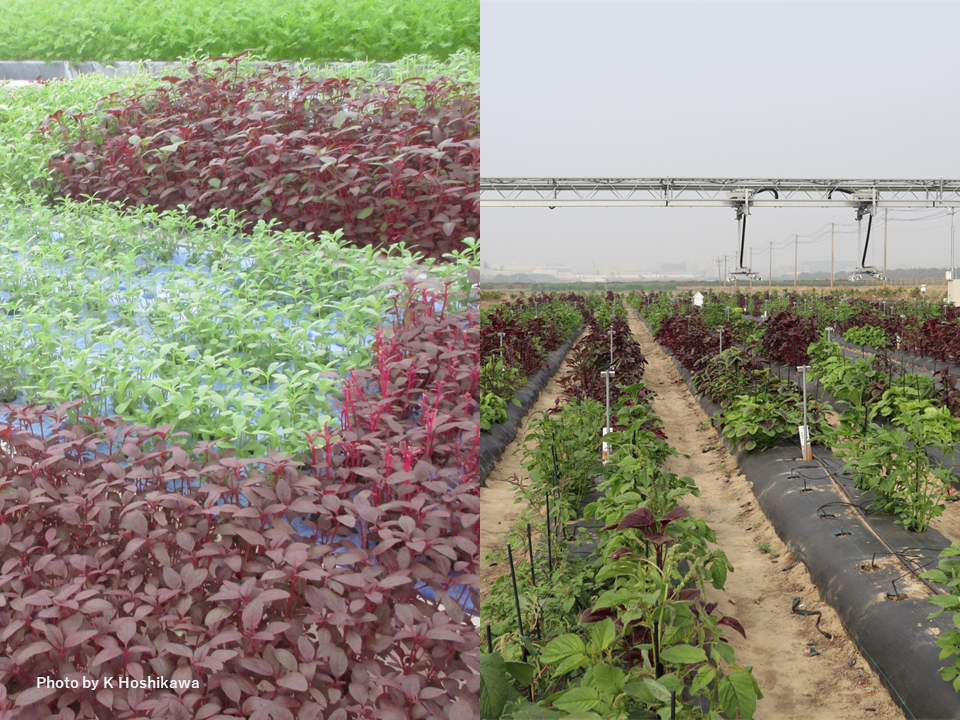Pick Up
675. Importance of Genetic Diversity Research on Orphan Crops

More than 2 billion people worldwide suffer from severe micronutrient deficiencies, referred to as "hidden hunger." In this context, overreliance on crop species represented by rice, wheat, maize, soybean etc., leads to a loss of genetic diversity in agricultural crops and poses a potential threat to global food security. In addition, it has been pointed out that it may lead to vulnerability in crop breeding and unbalanced nutritional balance.
In recent years, the early realization of a "bioeconomy," which aims for the coexistence of global problem solving and economic development through the use of biological resources and biotechnology, has been advocated. In this context, attention has focused on the effective use of underutilized crops and genetic resources called "orphan crops"*.
*These include fruits, vegetables, legumes, and grains that are produced and consumed in specific regions and not traded internationally. Orphan crops such as amaranth, baobab, moringa, quinoa, finger millet, etc., are underutilized food plants and currently receive little attention in agriculture in developed countries.
One orphan crop, Amaranthus (Amaranthus spp.), a genus of the amaranth family, consists of 60 to 70 species and is grown as a leafy vegetable, food grain, forage crop, and ornamental plant in South and Southeast Asia, South America, and Africa. Amaranthus species are important food crops for people living in these regions. They are resistant to environmental stresses such as disease, high temperatures, drought, and salt damage and contain large amounts of protein, vitamins, minerals, and dietary fiber. Because of its nutritional value, the amaranth seed is recognized by the World Health Organization (WHO) as one of the leading plant-based superfoods. However, despite its diversity and excellent nutritional value, breeding research on amaranth seed has been slow due to low demand in developed countries.
JIRCAS, in collaboration with the University of Tsukuba, World Vegetable Research Center, and Kazusa DNA Research Institute, has elucidated the genetic diversity of edible amaranth (Amaranthus tricolor L.), also known as ‘hiyuna’ in Japanese, a traditional vegetable in Asian regions, for the first time in the world.
A presentation on "hiyuna" research will be given at the International Nutrition Seminar to be held next week on December 12. Please register for this seminar. The deadline for registration is today, December 9 at 16:00.
International Nutrition Seminar
The application of science and traditional knowledge to foster the utilization of foods obtained from local landscapes for improved nutrition and livelihoods
Organizers: Japan International Research Center for Agricultural Sciences (JIRCAS)
The Alliance of Bioversity International and CIAT
Date & Time: December 12 (Mon), 2022 14:00~16:00 (JST)
Hybrid Format: Vision Center Hibiya + Webex
Seminar website https://www.jircas.go.jp/en/event/2022/e20221212
Registration https://www.jircas.go.jp/en/event/2022/e20221212/entry
Note 1: The number of participants at the venue will be limited to 40 people on a first-come, first-served basis. When you register, please indicate whether you will participate on-site or online.
Note 2: The seminar will be conducted in English (no simultaneous interpretation).
Contributors: HOSHIKAWA Ken (Biological Resources and Post-harvest Division), NAKASHIMA Kazuo (Food Program), IIYAMA Miyuki (Information Program)
